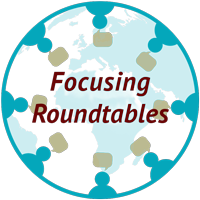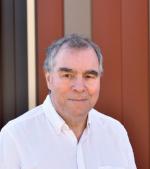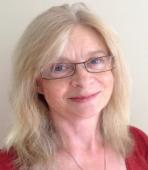Your Hosts



Where & When
A confirmation with the zoom link will be sent to registered participants the week of the event.
Live attendance required - no recording.
Friday, 1st April, 2022 - 10:00 am - 12:00 pm AEDT (Sydney - Australia)
Friday, 1st April, 2022 - 12:00 pm - 2:00 pm NZDT (New Zealand)
Friday, 1st April, 2022 - 7:00 am - 9:00 am AWST (Perth, Western Australia)
Thursday, March 31, 2022 - 7:00 pm - 9:00 pm EDT (New York - US)
Times worldwide: convert to your time zone
In 'Focusing Oriented Psychotherapy' (p271-2), Gendlin tells a story of a client discovering a Focusing move that she draws into the texture of her everyday life:
"When I understood her I responded [...]:
T: Don't decide. Just ask for what would be right, and leave it open what that would be.
C: I don't want to integrate; I just want whatever is right.
It brought relief. At certain times now, when she feels inwardly caught, she says, 'I just want whatever is right', and it frees her."
She has a new practice, a micropractice that is helpful whenever she feels "inwardly caught". This kind of innovation is a natural, informal extension of Focusing practice. If you look at how learning Focusing has influenced how you live, you may well find informal micropractices like this that you rely on, for a little while or over quite long periods.
Other ways to innovate include crossing practices and practice traditions with each other, e.g. Wholebody Focusing is both deeply Focusing and deeply the Alexander Technique; and letting Gendlin's Philosophy of the Implicit suggest new experiments. We have experimented in a wide variety of ways, in Greg's case as a practice researcher, inventing practices to help environmental managers, and exploring crossings of traditions of spiritual practice, and in Jane's case as a Focusing oriented psychotherapist and Focusing teacher.
We will begin by telling some stories from our explorations, and then open out the conversation to explore everyone's experiences and questions. During the Roundtable, we will be encouraging each of us to keep returning to felt sensing as we take in what others are saying, and as we let our own contributions take shape.
Who might be particularly interested in attending this Roundtable?
Anyone who is curious about how to come up with new ways of leveraging felt sensing in Focusing practice and everyday life.
CONNECTION>CONVERSATION>COMMUNITY
What to expect from Focusing Roundtables:
We warmly encourage you to register and settle down with us to join other Oceania Focusers passionate to explore topics of interest and get to know each other better. If you have an area of interest, curiosity or passion you would like to see opened up in a future Roundtable, please let us know.
Each Focusing Roundtable is designed to promote informal peer-to-peer conversation. Rather than acting as expert presenters, the Hosts will serve as conversation moderators to encourage sharing and exploration of the topics from the participants’ own perspectives. All participants’ sharings are welcome and valuable, no matter what level of experience or knowledge you have on the topic.
To preserve the nature of informal conversation, the program will be offered live only and no recordings will be available. Participants are encouraged to create follow up opportunities for connection among themselves after the Roundtable.
The TIFI Membership Committee is pleased to offer this series of Focusing Roundtables designed especially for members of the Institute. Roundtables will afford members a valuable opportunity to engage in casual peer-to-peer conversation with other members who share Focusing-related interests. If you are not a member, please join at http://www.focusing.org/membership, then return to this page to register.
About your hosts:
Greg Walkerden PhD is a researcher who designs practices in environmental management and planning, and felt-sense centred reflective practice. His academic roots are in philosophy and psychology. He has been a Focusing practitioner for over 35 years, is a Certified Focusing Professional and Teacher, and taught felt sense based decision making at Macquarie University in Sydney for about 15 years. Gendlin invited him to teach A Process Model at his 'Thinking at the Edge' retreats in New York in 2000, 2001 and 2002.
Jane Quayle is a Certifying coordinator and former member of the TIFI board of Trustees. She is a Focusing Oriented Psychotherapist, and has taught focusing in her private practice for 20 years. She has also taught in a variety of tertiary institutions including Western Sydney University, Macquarie University and developed a Focusing Oriented Therapy elective for the Jansen Newman Institute. Her teaching experience includes counselling skills, supervision of student therapists and Focusing Oriented Psychotherapy.
Greg and Jane have worked together for over 20 years as Focusing partners, exploring innovations in Focusing practice. For more information on their work, see The Play of Felt Sensing in Conversation.
Registration Information and Price
Registration Closes: Thursday, March 31 at 9:00 am NY Time, or when the class is full, whichever is sooner.
Zoom: We use Zoom for all of our online offerings. Please attend by computer so that we can have your video presence as well as your audio. Calling in by phone is also possible but not preferred.
Price: The co-hosts are volunteering their time in order that this program may be brought to members of TIFI at no charge.
PLEASE NOTE: When you register, if your dues are current, your registration is confirmed. If your dues are not current or or if you are not yet a member, please go to the membership page to pay your dues or join and then return to this page to register. Membership page: http://focusing.org/membership. Because this is a members only program, your spot in the Roundtable is not held until your dues are paid. Thank you!
